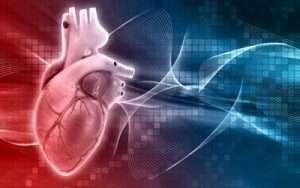Cardiology

Cardiology
What is Cardiology?
Cardiology is a medical specialty that focuses on the diagnosis, treatment, and prevention of heart and blood vessel diseases. Cardiologists are trained medical doctors who specialize in diagnosing and treating conditions related to the heart, including heart disease, heart attack, heart failure, and congenital heart defects.
[latepoint_book_button selected_service=”15″ bg_color=”#8daa2e” text_color=”#fff” caption=”BOOK AN APPOINTMENT”]
Common Conditions Treated by Cardiologists
There are many different conditions and diseases that a cardiologist can diagnose and treat, including:
Coronary Artery Disease
Coronary artery disease (CAD) is a common type of heart disease that occurs when the arteries that supply blood to the heart become narrow and clogged with plaque. This can lead to chest pain, heart attack, and even death.
Heart Attack
A heart attack occurs when the blood flow to a part of the heart is blocked, usually by a buildup of plaque in the coronary arteries. Without enough blood and oxygen, the heart muscle can become damaged or die.
Heart Failure
Heart failure occurs when the heart is unable to pump enough blood to meet the body’s needs. This can be caused by a variety of factors, including heart attack, high blood pressure, and heart valve disease.
Congenital Heart Defects
Congenital heart defects are abnormalities in the structure of the heart that are present at birth. They can range from minor to life-threatening and can affect the heart’s ability to function properly.
Arrhythmia
Arrhythmia is a condition in which the heart beats too fast, too slow, or with an irregular rhythm. This can lead to dizziness, fainting, and even death if not treated properly.
Diagnostic Tests Used in Cardiology
To diagnose and monitor the progression of heart and blood vessel diseases, cardiologists use a variety of diagnostic tests, including:
Electrocardiogram (ECG)
An ECG is a test that records the electrical activity of the heart. It can help diagnose and monitor conditions such as heart attack, arrhythmia, and heart failure.
Echocardiogram
An echocardiogram is a test that uses sound waves to create a moving picture of the heart. It can help diagnose and monitor conditions such as heart valve disease, heart failure, and congenital heart defects.
Cardiac Catheterization
Cardiac catheterization is a procedure in which a long, thin tube is inserted into the heart through a blood vessel. This allows the cardiologist to see the inside of the heart and blood vessels, diagnose any problems, and perform certain treatments.
Cardiac MRI
Cardiac MRI is a test that uses a strong magnetic field, radio waves, and computer technology to create detailed images of the heart and blood vessels. It can help diagnose and monitor conditions such as heart disease and heart failure.
